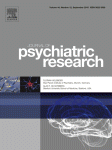 We have an update on the case of Moêz Smiri, a graduate student working in a Tunisian-French laboratory, whose bold method of bulking up his CV proved a bit trop ambitieux.
We have an update on the case of Moêz Smiri, a graduate student working in a Tunisian-French laboratory, whose bold method of bulking up his CV proved a bit trop ambitieux.
As we reported back in August 2011, Smiri had plagiarized repeatedly from previously-published work, and forged the names of co-authors, in a 2010 article in Plant Science on the effects of cadmium on peas. That article was one of at least six papers on which Smiri appeared as first author — a pretty impressive output for a young researcher.
Among the list was article in Ecotoxicology and Environmental Safety, “Effect of cadmium on resumption of respiration in cotyledons of germinating pea seeds.” That paper is now retracted. According to the notice: Continue reading Another retraction for grad student who specializes in plagiarism and forging co-authors’ names








